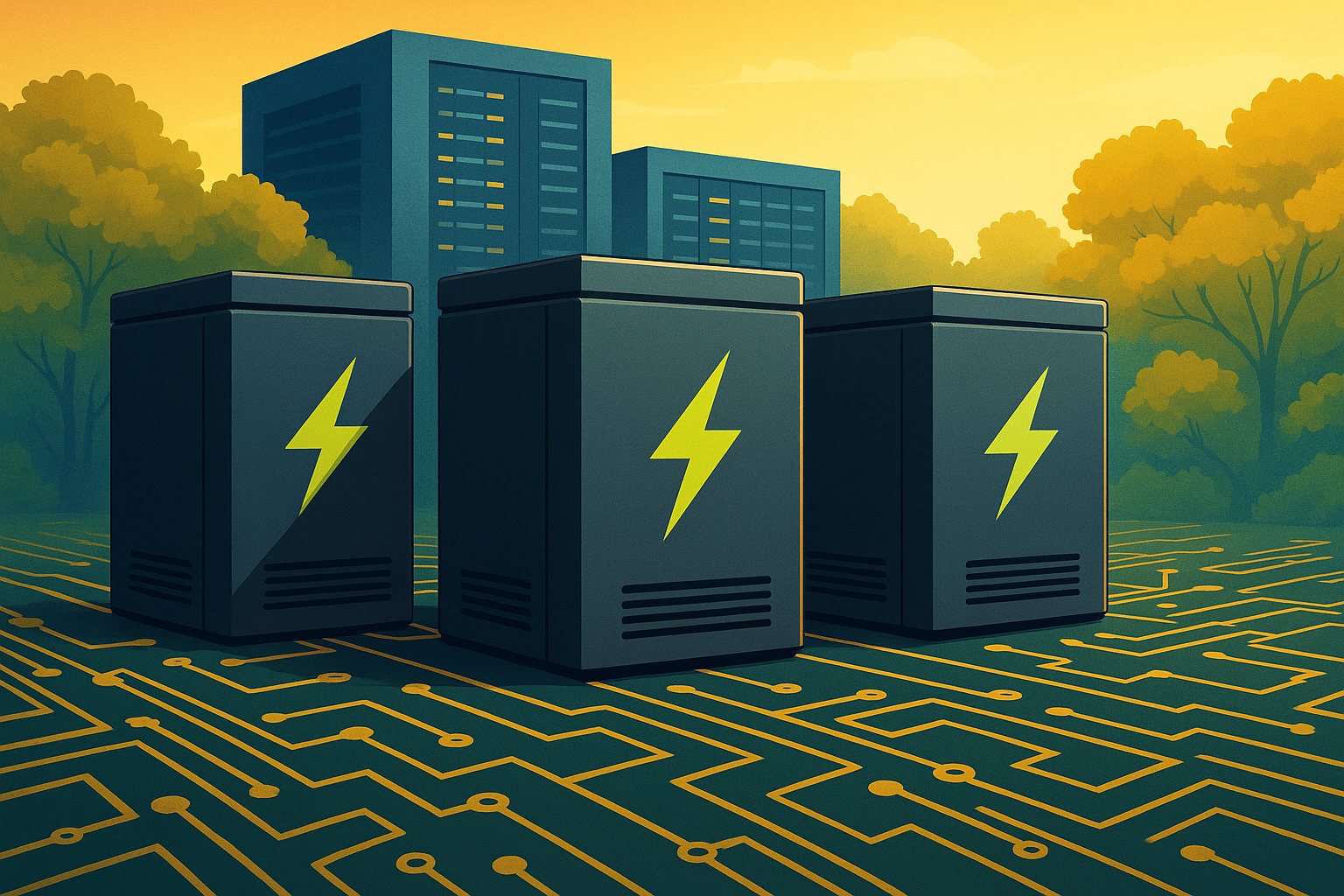The rapid expansion of artificial intelligence isn’t just fueling demand for chips and data centers—it’s sparking a race for sustainable energy solutions to power them. On June 27, 2025, TechCrunch reported that Redwood Materials, the battery recycling startup founded by former Tesla CTO JB Straubel, is officially entering the energy storage market, aiming to develop green battery systems tailored for AI-driven data centers.
The move places Redwood at the intersection of three of the most powerful investment themes of the decade: AI, renewable energy, and critical materials circularity. For investors, this development represents more than a new business vertical—it could be the blueprint for a new class of AI infrastructure built on sustainability.
Powering the AI Boom Requires Green Energy
As generative AI workloads soar, so does the energy intensity of training and inference models. According to the International Energy Agency (IEA), global electricity demand from data centers could double by 2026, with AI-related demand accounting for a significant share.
Redwood Materials is positioning itself as a key enabler in this energy equation. By leveraging its closed-loop battery supply chain—built from recycled lithium, cobalt, and nickel—the company plans to provide large-scale, modular storage systems that can support grid-balancing, peak shaving, and clean energy buffering for data centers.
Straubel’s experience at Tesla and focus on vertical integration gives Redwood a strategic edge. The company already works with Amazon, Ford, and Panasonic, and has raised over $2 billion from investors including Goldman Sachs and Breakthrough Energy Ventures.
Why This Matters for Investors
The convergence of AI and clean tech is no longer theoretical—it’s investment reality. Hyperscale data centers are under mounting pressure to decarbonize operations while maintaining uptime and computational scale. That opens a market for battery storage solutions that are resilient, scalable, and green.
- Growing TAM: The global energy storage market is expected to exceed $200 billion by 2030, according to BloombergNEF. AI-specific data infrastructure is projected to represent a growing subset of that demand.
- Policy Tailwinds: U.S. federal and state-level incentives—particularly from the Inflation Reduction Act (IRA)—are accelerating investment in both battery recycling and sustainable energy systems.
- Strategic Supply Chain Control: Redwood’s ability to domestically source and recycle key battery materials gives it an advantage amid rising scrutiny over foreign mineral dependence, especially from China.
As sustainability becomes an operational mandate—not just a marketing line—Redwood is poised to benefit from capital flowing into ESG-aligned infrastructure.
Future Trends to Watch
- AI-Optimized Grid Storage
As AI becomes more embedded in power systems, grid-balancing batteries integrated with machine learning could drive demand for Redwood’s intelligent energy platforms. - Hyperscaler Partnerships
Expect Redwood to seek deals with companies like Google Cloud, Amazon Web Services, and Microsoft Azure, all of whom are investing in green energy transition strategies for their AI data farms. - Battery Recycling Regulation
With new mandates in the EU and parts of the U.S. requiring manufacturers to use recycled content, Redwood’s early-mover advantage in circular battery supply chains could become a regulatory moat. - Expansion into Europe and Asia
Redwood’s growth strategy could include international expansion—particularly in regions with aggressive AI infrastructure development and green energy mandates.
Key Investment Insight
Redwood Materials is no longer just a battery recycler—it’s becoming a next-gen energy infrastructure play. Investors looking to gain exposure to the convergence of AI, renewable energy, and sustainable infrastructure should closely monitor Redwood’s rollout and potential partnerships.
Though currently private, its trajectory suggests a future IPO or acquisition could be on the horizon. In the meantime, exposure can be considered through venture-aligned funds or related holdings in public companies such as Panasonic, Ford, or Amazon, all of which maintain strategic relationships with Redwood.
Stay informed with MoneyNews.Today as we track the companies redefining how the AI age is powered—sustainably, scalably, and smartly.





